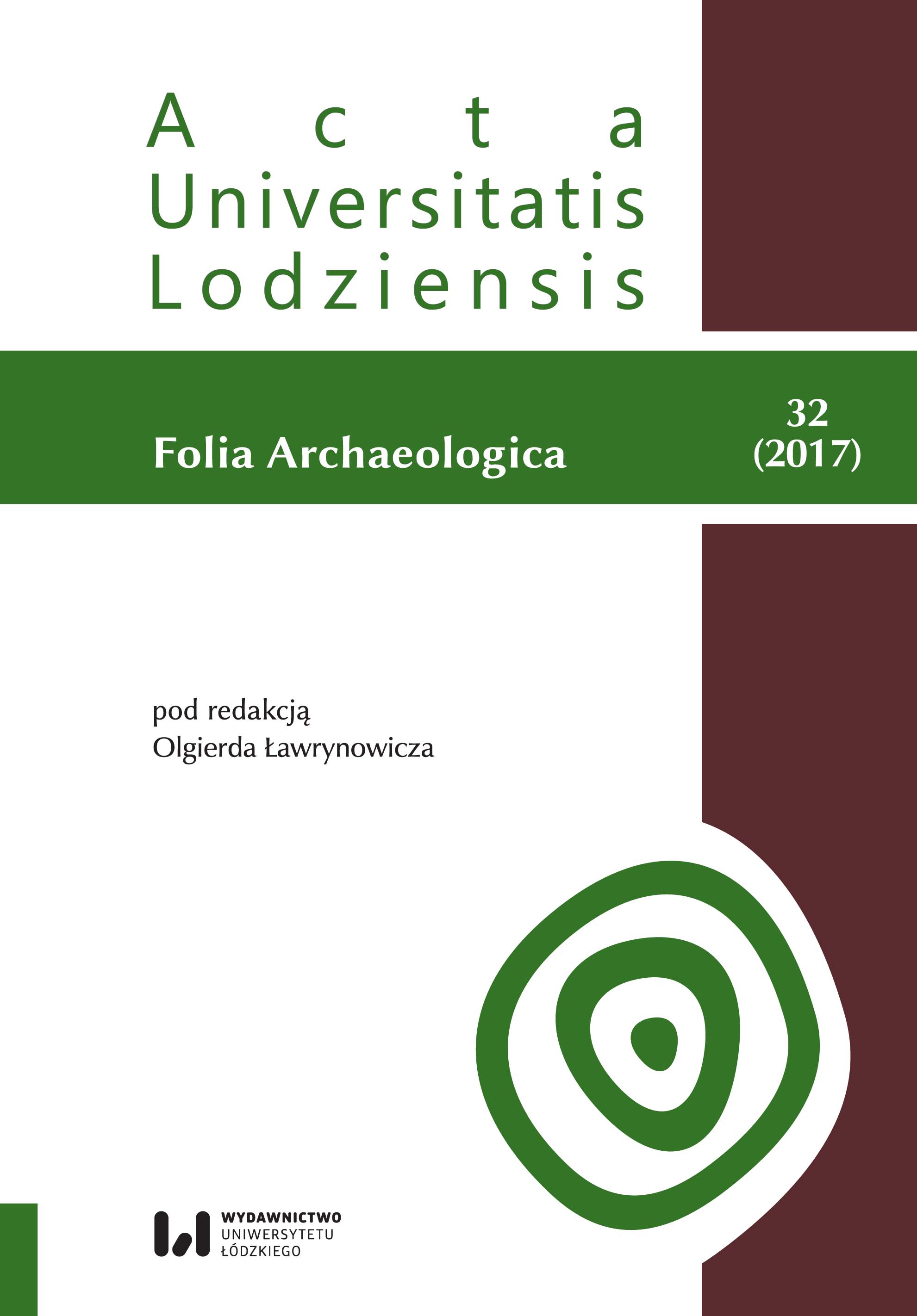Formalno-prawna problematyka archeologii współczesności w Polsce
DOI:
https://doi.org/10.18778/0208-6034.32.02Słowa kluczowe:
broń, prawo, archeologia, współczesność, historia, zabytekAbstrakt
Recently, in the circle of archaeologists, we observe discussions on the issues related to the contemporary archeology. This topic is also the subject of disputes between the opponents and the supporters of an innovative look at archeology. Studying this issue, it is worth pointing that the places and events connected with the contemporary history are increasingly becoming a subject of interest to archaeologists. It overlaps with another issue – devastation and destruction of archaeological sites along with many places of battlefields in our country. It is increasingly evident that the field of action of archaeologists touches the dark period of operation in our country by the German occupation authorities and the post-war communist authorities. We should keep in mind that even the dark part of our history must be protected. It is also our heritage, which should be a subject of protection enshrined in the Constitution of the Polish Republic with its tangible and intangible elements and without any restrictions. It would be advisable that the archaeologists, conservation authorities and all stakeholders should explain all the emerging doubts while working out on the common position in this matter. We should realize that the contemporary archeology is not only traces of the past events that surround us, but it is also the material evidence of our existence that will remain after us. It seems that the contemporary archeology is nothing but a continuation of the archeology, which evolves and follows the mankind, along with our sometimes complicated existence. It is still archeology, which is called the contemporary archeology in order to precisely define the period of its interest. We should keep in mind that the contemporary archeology is also an important element shaping the cultural awareness which further increases its value.
Pobrania
Bibliografia
Konstytucja Rzeczypospolitej Polskiej z dnia 2 kwietnia 1997 r. (Dz.U. 1997 Nr 78, poz. 483).
Google Scholar
Ustawa z dnia 23 kwietnia 1964 r. kodeks cywilny (Dz.U. 1964 Nr 16, poz. 93).
Google Scholar
Ustawa z dnia 6 czerwca 1997 r. kodeks karny (Dz.U. z 1997 r. Nr 88, poz. 553).
Google Scholar
Ustawa z dnia 18 grudnia 1998 r. o Instytucie Pamięci Narodowej – Komisji Ścigania Zbrodni przeciwko Narodowi Polskiemu (Dz.U. 1998 Nr 155, poz. 1016).
Google Scholar
Ustawa z dnia 23 lipca 2003 r. o ochronie zabytków i opiece nad zabytkami (Dz.U. Nr 162, poz. 1568).
Google Scholar
Ustawa z dnia 20 lutego 2015 r. o rzeczach znalezionych (Dz.U. 2015, poz. 397).
Google Scholar
Barker P. (1994), Techniki wykopalisk archeologicznych, Biblioteka Muzealnictwa i Ochrony Zabytków, Warszawa.
Google Scholar
Gadecki B. (2014), Ustawa o ochronie zabytków i opiece nad zabytkami. Art. 108–120. Przepisy karne, C.H. Beck, Warszawa.
Google Scholar
Gassowski J. (1985), Kultura pradziejowa na ziemiach Polski, Państwowe Wydawnictwo Naukowe, Warszawa.
Google Scholar
Kawecki J., Konczewski P., Szwagrzyk K., Trzciński M. (2013), Archeologia sądowa w teorii i praktyce, Wolters Kluwer, Warszawa.
Google Scholar
Ławecka D. (2003), Wstęp do archeologii, Państwowe Wydawnictwo Naukowe, Warszawa– Kraków.
Google Scholar
Maisel W. (1982), Archeologia prawna Polski, Państwowe Wydawnictwo Naukowe, Warszawa–Poznań.
Google Scholar
Maisel W. (1989), Archeologia prawna Europy, Państwowe Wydawnictwo Naukowe, Warszawa–Poznań.
Google Scholar
Mamzer H. (2004), Archeologia i dyskurs, IAE PAN, Poznań.
Google Scholar
Ogrodzki P. (2010), Przestępczość przeciwko zabytkom, krótka charakterystyka problemu. Stan na rok 2010, [w:] R. Pasieczny (red.), Cenne, bezcenne/utracone, NIMOZ, Warszawa, s. 9–10.
Google Scholar
Pływaczewski W., Kędzierska G. (2001), Leksykon Policyjny, WSPol, Szczytno.
Google Scholar
Renfrew C., Bahn P. (2002), Archeologia, Prószyński i S-ka, Warszawa.
Google Scholar
Trzciński M. (2010), Przestępczość przeciwko zabytkom archeologicznym. Problematyka prawno-kryminalistyczna, Wolters Kluwer Polska, Warszawa.
Google Scholar
Wrońska-Kowalska J. (1997), Recepcja osiągnięć archeologii europejskiej w badaniach nad epoką kamienia, [w:] M. Głosek (red.), Archeologia i starożytnicy, IAiE PAN, Łódź, s. 315–317.
Google Scholar
Wyrzykowski M. (1986), Pojęcie interesu społecznego w prawie administracyjnym, Wydawnictwo Uniwersytetu Warszawskiego, Warszawa.
Google Scholar
Zalasińska K., Zeidler K. (2012), Problematyka wartościowania jako podstawy rozstrzygnięć wojewódzkiego konserwatora zabytków, [w:] B. Szmygin (red.), Wartościowanie w ochronie i konserwacji zabytków, Wydawnictwo Politechniki Lubelskiej, Warszawa–Lublin.
Google Scholar
Zeidler K. (2008), O znaczeniu i roli teorii konserwatorskiej w procesie stosowania prawa, [w:] B. Szmygin (red.), Współczesne problemy teorii konserwatorskiej w Polsce, Wydawnictwo Politechniki Lubelskiej, Warszawa–Lublin.
Google Scholar
Żurawik A. (2013), „Interes publiczny”, „interes społeczny” i „interes społecznie uzasadniony”: Próba dookreślenia pojęć, „Ruch Prawniczy, Ekonomiczny i Socjologiczny”, t. 75, nr 2.
Google Scholar
Pobrania
Opublikowane
Jak cytować
Numer
Dział
Licencja

Utwór dostępny jest na licencji Creative Commons Uznanie autorstwa – Użycie niekomercyjne – Bez utworów zależnych 4.0 Międzynarodowe.












